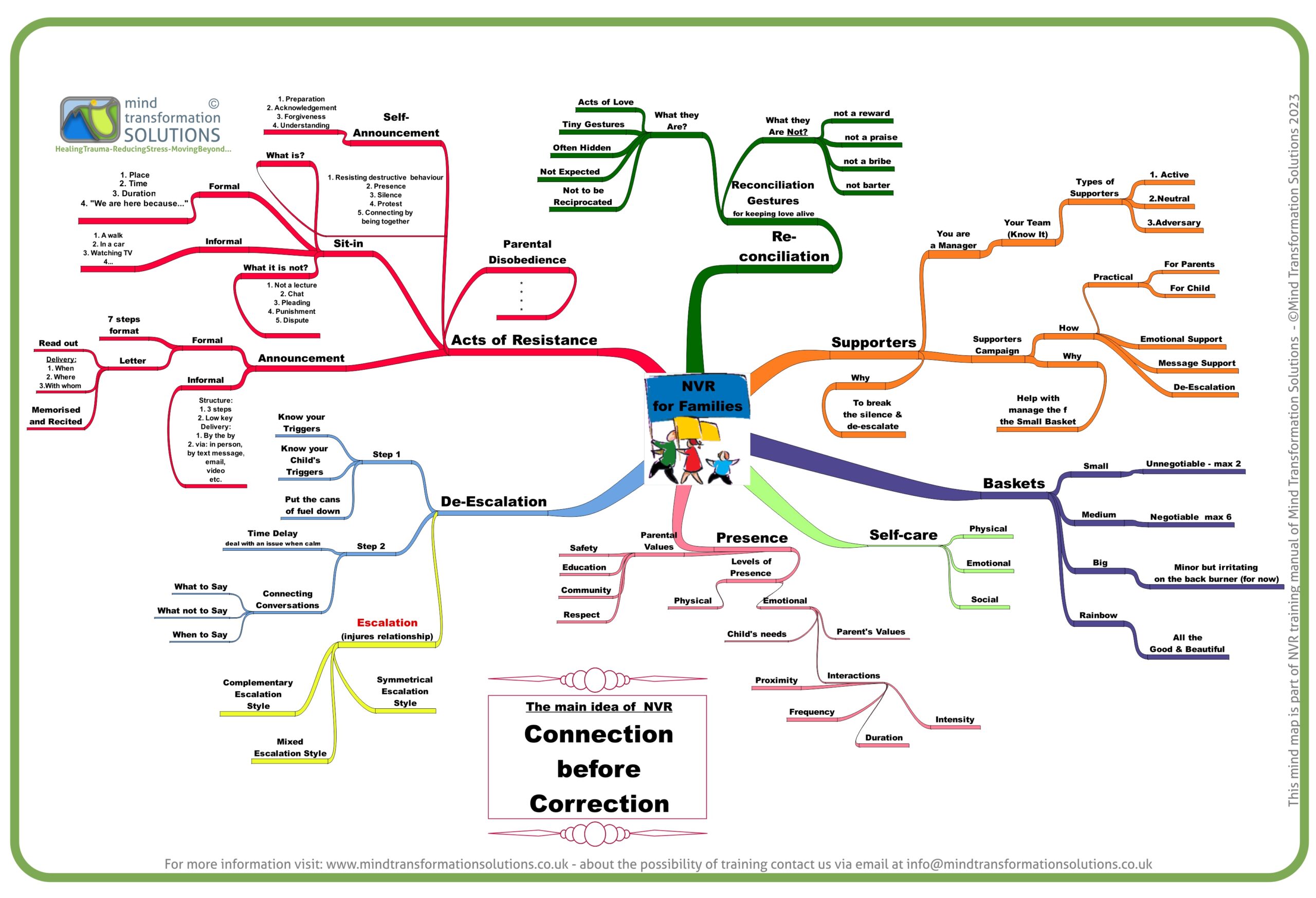My intention behind writing the NVR blog is to:
A) introduce parents, foster parents, adoptive parents, carers to NVR
B) assist caregivers interested in using NVR who due to a lack of local resources have no access to NVR support.
I would be happy to become your supporter. Please feel free to contact me![]() .
.
I hope that articles will be useful, as a refresher, for those parents who attended NVR parenting programmes. Experienced NVR parent-practitioners may wish to share their wisdom and practical advice with those at the beginning of their NVR journey.
Three NVR steps to bringing harmony into your home – how to stop adding fuel to the fire?
In one of meetings I recently attended I was put on the spot – “so what are you going to do about this problem?”. The undertone I sensed in this question was:
- There is a problem and this is your problem to make things work because, hey you are the therapist here, right?
I responded to the question as follows:
“I specialize in helping parents and carers who struggle with their children’s challenging behaviours to find successful solutions so families can again feel happy and relaxed together. During the work with me parents become empowered to deal with any future challenges calmly and confidently. The work focuses on a basic NVR principal – connection before correction.
- On practical level, I help parents to de-escalate their reactions to the children’s behaviours. We may often feel so incensed by their conduct. When we manage to remain calmer in a challenging situation it is like putting out blazing fire. I coach parents to practice the de-escalation skills until they feel confident and capable of controlling their own internal state (temper). This would be like learning how to safely use candles in a barn full of dry hay.
- Then we add a new element to the strategy called a reconciliation gesture. It helps to heal and rebuild ruptures in the parent-child bond.
- Thirdly, boundaries are either brought back into the parent-child relationship or new are created. In the course of the work parents become skilled in using these steps to deal with any new difficulty should they arise – deescalating of the situation, reconciling, and boundaries – constructive disciplining. We practice those steps until the family is ready for a next step”.
My experience of working with families shows me that the above steps work in majority of situations, for instance:
- a child’s obsessive-compulsive behaviours which control the whole household or
- when a child is self-harming or
- when she is very shy, or
- when he demonstrates signs of computer addiction or
- when a young man is physically abusive towards his family members
- when a young lady experiments with sex, drugs and alcohol and put herself at risk
Let me emphasise that those steps are simple yet it does not mean they are easy. I am not suggesting that those steps sort out everything in no time. No, I am just saying that solutions to complex challenges need to be simple and accessible. Otherwise the solution, if it is too complex, may itself become a problem. A fire drill does not say – “when a fire alarm goes off, take stairs A or B or go to the roof where you can quietly contemplate taking in the future advance training in fire safety. Then gather in front of the building or go home if you feel like”. NO, it is rather: “Use the staircase A to get out of the building quickly and orderly. Leave your belongings. Gather in the assembly place and wait for a fire warden’s instructions”.
- De-escalation: in any difficult interpersonal situation the fire of soaring emotions needs to be extinguished first before the difficulty can be dealt with constructively. There is no way the fire can be stopped if somebody pours gasoline on it. As long as the fire in the house is burning no one does any redecorating!
In the analogy of the fire the de-escalation is also about being willing to notice and own our contribution to the arguments, stop blaming other participants for making it going; appreciating moments when others stopped adding fuel to flames.
- Reconciliation: a reconciliation gesture is an act of love towards our children who may be in the midst of their worst behaviour. For many people this idea sounds unclear, rest assure we will be talking about it in more details. If we stick to the fire analogy, the reconciliation gesture would be like saying: no matter what, this is our house; we will rebuild it and invest in making it beautiful again. We do not get crossed with the house because it caught fire, do we?
- Discipline: constructive disciplining in the fire analogy would be like reinforcing a house rule about fire e.g. always someone accompanies a candle which is lit; there will be no more than 3 electrical equipment plugged into one extension cord etc. The rules are clear and simple. We learn fire drills by following the same routine to imprint it in our memory. So when a real fire breaks out we act automatically. We similarly reinforce and remind the house rules about safety – there is no need for lectures about it. There is no need to engage in any discussions about it – it simply needs to be followed. No one disputes with health and safety regulations about fire hazard. Fire kills.
The fire of uncontrollable emotions kills relationships, severs bonds between people and in consequence may impact a development of children who are raised in emotionally unstable environment.
In addition Let me also spell out what the de-escalation, reconciliation and disciplining ARE NOT.
- De-escalation is NOT ignoring, doing things for the sake of peace, pretending you can’t see, running away from the situation – locking yourself in the bathroom, using a destructing technique – food, jokes, TV; playing a game – “let’s pretend it did not happen”
- Reconciliation is NOT – rewarding, bribing, pacifying, buying peace, bargaining, black mailing – I will give you this if you…
- Disciplining is NOT – arguing, explaining, disputing, discussing, lecturing, pleading, appealing, showing understanding, punishing, shouting, shaming, criticising, belittling, abusing, taunting, blaming, bartering.

